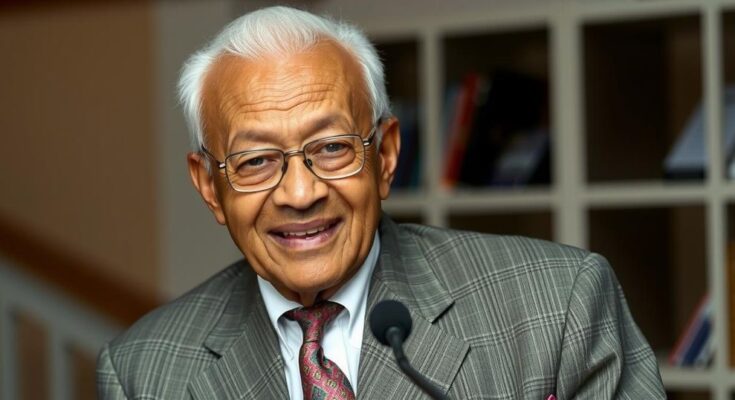Jimmy Carter made history as the first U.S. president to visit sub-Saharan Africa, transforming American engagement with the continent. His administration focused on human rights and democracy, while his post-presidency efforts included significant public health initiatives aimed at eradicating diseases like guinea worm. Carter’s legacy is characterized by his dedication to fostering equitable relations with African nations and advocating for their development and independence.
Former President Jimmy Carter notably shifted the United States’ approach to Africa, becoming the first U.S. president to undertake a state visit to sub-Saharan Africa. Recognizing that prior administrations had largely neglected the continent, Carter acknowledged, “For too long our country ignored Africa,” during his early presidency. His administration focused on fostering relationships with African leaders and addressing vital issues such as human rights, civil rights, and social equity, which earned him respect and admiration across the continent.
Carter’s enduring legacy resonates particularly in rural Africa, where his foundation has worked extensively towards eradicating diseases, even achieving significant progress against guinea worm disease. His advocacy led to an ambitious goal of ensuring that no individual suffers from this debilitating affliction, with only 14 documented cases remaining as of 2023. Moreover, Carter’s leadership in promoting democracy and human rights took precedence over Cold War dynamics, demonstrating his commitment to African nations’ independence and self-determination.
Even post-presidency, Carter continued to engage with Africa, making numerous trips and focusing on various humanitarian efforts through The Carter Center. His relentless pursuit of social and political justice for the African people emphasized the importance of dignity and empowerment in addressing public health challenges. As a result, Carter remains a pivotal figure in the history of U.S.-Africa relations and will be commemorated for his work in championing democracy and public health in the region.
The background of this topic centers on the historical context of U.S.-Africa relations prior to Jimmy Carter’s presidency, wherein the continent received scant attention from American leaders. The post-colonial era of the 1960s and 70s saw various independence movements emerge, yet the U.S. was largely disengaged. Carter’s presidency marked a transformative shift as he recognized the strategic and humanitarian importance of Africa, leading to a new era of diplomatic engagements and initiatives aimed at fostering development and democracy across the continent. Carter’s faith and moral principles significantly influenced his policies, prompting him to adopt human rights as a cornerstone of U.S. foreign policy. His work in Africa, particularly concerning public health and democracy, has had lasting impacts and positioned him as a respected figure in international diplomacy, ahead of many global leaders in acknowledging Africa’s potential and challenges.
In conclusion, Jimmy Carter’s presidency fundamentally altered the United States’ perception and engagement with Africa. By prioritizing humanitarian efforts, democracy, and human rights, he paved the way for a progressive approach towards relationships with African nations. His lasting influence is evident in the ongoing fight against diseases such as guinea worm and the promotion of democratic values, solidifying his legacy as a champion of the African people’s rights and dignity.
Original Source: apnews.com




